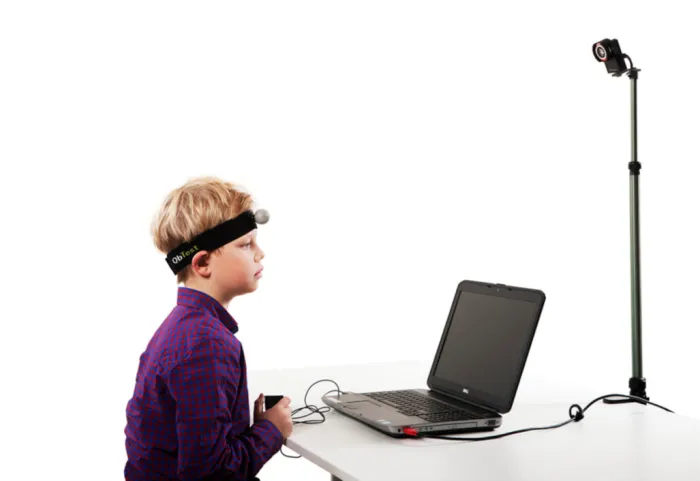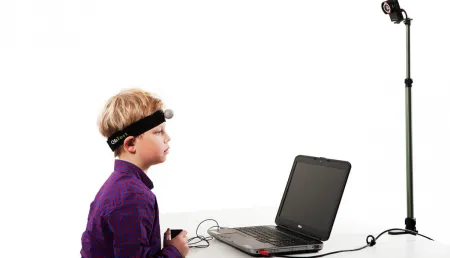
NICE guidance has suggested that healthcare professionals can accurately diagnose children with ADHD by using QbTest – a uniquely designed quantitative behavioural measurement system.
Trialled by the National Institute for Health and Care Research (NIHR) Applied Research Collaboration (ARC) East Midlands, the innovative digital technology can support diagnostic assessment for ADHD in children and young people faster than standard clinical assessments.
In addition, QbTest reduces NHS costs by 33 per cent, according to the AQUA clinical trial – the study that tested the effectiveness of the technology.
There has been a fourfold increase in referrals for ADHD since the COVID-19 pandemic and this device can reduce time to an accurate diagnosis.
Professor Richard Morriss, NIHR ARC East Midlands Mental Health and Well-being Theme Lead and Professor of Psychiatry at the University of Nottingham, said: “There has been a fourfold increase in referrals for ADHD since the COVID-19 pandemic and this device can reduce time to an accurate diagnosis in children and young people by one third in terms of clinic time.
“NIHR ARC East Midlands worked with industry to help with this challenge. NICE has now recommended QbTest, which is now used in 70 per cent of NHS services for ADHD in children and young people.”
He added: “NIHR ARC East Midlands is currently exploring how QbTest might also help with treating as well as diagnosing ADHD.”

Mark Chapman, Director of NICE’s HealthTech, said: “Children and young people with ADHD deserve to receive a diagnosis in a timely manner.
“We heard from our patient experts there are challenges with current pathways. We’re committed to ensuring we get the best care to people fast while providing value for money to the taxpayer.”
He continued: “This technology has the potential to generate tangible benefits to the lives of those waiting for an ADHD diagnosis.
“Evidence presented to our committee showed the QbTest could increase the number of children and young people who get a diagnostic decision within six months of starting assessment.”
QbTest is a computer-based test that tracks the movement of participants whilst measuring three core symptoms of ADHD – inattention, impulsivity and hyperactivity.
I can honestly say that the addition of QbTest has revolutionised my clinical practice.
Dr Julie Clarke, Consultant Paediatrician at United Lincolnshire Hospitals, said: “As a clinician with extensive experience in assessment, diagnosis and treatment of ADHD, I can honestly say that the addition of QbTest has revolutionised my clinical practice.”
Professor Kamlesh Khunti, Director of NIHR ARC East Midlands and the Real World Evidence Unit and Professor of Primary Care Diabetes and Vascular Medicine at the University of Leicester, said: “The AQUA clinical trial has provided compelling evidence that incorporating QbTest alongside standard clinical assessments for ADHD results in quicker diagnostic decisions, with a larger proportion of diagnoses being made within six months of the first assessment.
“This breakthrough allows clinicians to rule out ADHD more effectively, greatly improving the diagnostic process. This is a monumental step forward in ADHD care.”
ADHD is a disorder of brain development that impacts on behaviour, affecting around one in 20 school aged children.

